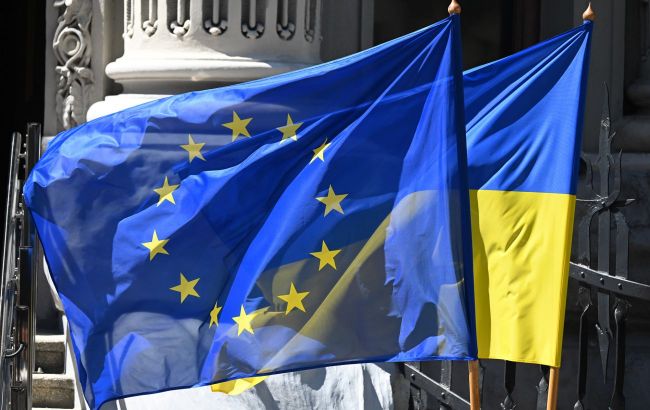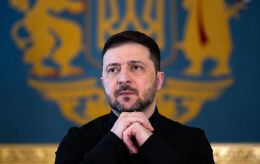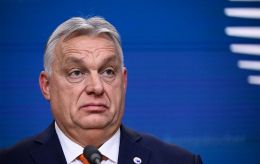EU divided over €140 bln loan to Ukraine funded by frozen Russian assets
 Photo: EU countries cannot agree on terms of a loan to Ukraine (Getty Images)
Photo: EU countries cannot agree on terms of a loan to Ukraine (Getty Images)
The EU is discussing the terms of a € 140 billion reparations loan to Ukraine, to be financed from frozen Russian assets. Paris and Berlin want the money to go toward purchasing European-made weapons, according to Politico.
Europe divided over loan for arming Ukraine
European countries have not yet agreed on whether to grant Ukraine a €140 billion loan to purchase weapons for the fight against Russia. However, disputes have already erupted over the conditions under which these funds would be provided.
The three largest EU economies — France, Germany, and Italy — propose that as much of the money as possible should return to the EU’s own defense industry rather than flow overseas.
Tensions are expected to rise at the EU leaders’ summit in Brussels on October 22, where heads of state and government will instruct the European Commission to prepare a legal proposal for the loan.
Paris and Berlin seek to bolster the EU defense industry
Many details of the planned loan remain undecided. Still, debates are ongoing over whether to impose conditions on its use. The loan is to be funded by frozen Russian assets, with the money allocated both for Ukraine’s military needs and for budgetary support.
France, along with Germany and Italy to a lesser extent, insists the loan should be used to purchase European weaponry. This idea was first voiced by German Chancellor Friedrich Merz in an article for the Financial Times in September.
"Such a comprehensive program must also help to strengthen and expand the European defense industry," he wrote. "That would serve both our collective security and European sovereignty."
Northern and Eastern Europe oppose restrictions
The Netherlands, as well as the Scandinavian and Baltic countries, are against this approach. They argue that Ukraine should have full freedom to use the funds — including the ability to buy weapons from American companies.
After pressure from Berlin and Paris, the draft conclusions of the summit already include a clause on "the importance of reinforcing the European defense industry" through the loan. However, critics see this approach as hypocritical.
"If the aim is to keep Ukraine in the fight, you need to keep the criteria open," one senior EU diplomat told Politico.
Ukraine must have freedom of choice in weapons procurement
Opponents argue that imposing a "Buy European clause" would prevent Kyiv from acquiring critically important weapons systems — such as Patriot air defense systems — that are manufactured only in the United States.
"I hope that they can buy more and more weapons from Europe, but we know that we don’t have all those capabilities and weapons in Europe that they need. So it’s reality that they also must be allowed to buy from the US, if needed," Finnish Prime Minister Petteri Orpo told Politico.
Differences over this issue already emerged last week during a dinner of EU defense ministers.
Ukraine may use the loan to buy US weapons as well
Former Lithuanian Defense Minister Dovile Sakaliene, who recently resigned due to disagreements with the prime minister over the defense budget, also supported the idea of allowing Ukraine to use the loan to buy American arms.
"If we can use the reparation loan to fund what Ukraine needs the most, this is great, and it can be great if it could be used to cover the most urgent needs of Ukraine, including the weapon systems made by the United States," she said.
She also reminded about NATO’s Prioritized Ukraine Requirements List initiative, under which the United States sells weapons to Ukraine if European allies pay for the deliveries.
Background
As a reminder, the EU has moved closer to approving a decision to channel frozen Russian assets into financing a large-scale loan for Ukraine.
On October 23, the European Council will meet in Brussels to discuss the use of frozen Russian assets to provide Ukraine with financial assistance over the coming years. Ukrainian President Volodymyr Zelenskyy is expected to address the participants.


